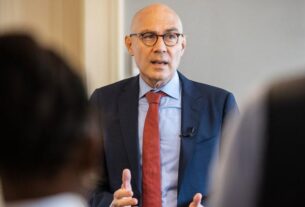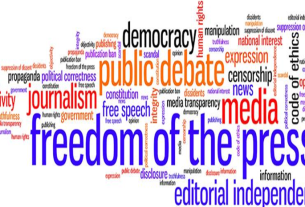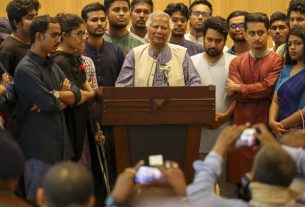United Nations member countries need to overhaul the budgetary approval process for UN human rights work. The current system, overseen by the General Assembly’s Fifth Committee, is inefficient and overly politicized. It unnecessarily exposes UN human rights mechanisms – teams of independent experts established to investigate serious international crimes – to attempts by hostile governments to curtail their resources or defund them.
The Fifth Committee’s job is to allocate resources to UN activities – not decide which activities deserve them. That’s the job of legislative bodies like the UN Human Rights Council or General Assembly.
The International Commission of Human Rights Experts on Ethiopia is among the at-risk human rights mandates in the 2023 budget negotiations. UN diplomats told Human Rights Watch that the Ethiopian government, in an effort to undermine accountability for alleged war crimes and possible crimes against humanity, is once again seeking support to defund the commission.
Russia has repeatedly tried to defund investigations of its ally Syria, just as China has done for Myanmar. China and Russia have also worked hard to chip away at funding and staffing levels for other human rights activities and the Office of the UN High Commissioner for Human Rights.
It’s not only China and Russia. The United States and some European Union countries joined Israel last year to try to defund the Commission of Inquiry on Israel and Palestine. They may try again.
Other vulnerable UN investigations include Ukraine, Nicaragua, Russia, Venezuela, and Sri Lanka.
Another problem is the UN Advisory Committee on Administrative and Budgetary Questions (ACABQ). Formally it’s an independent expert body, but diplomats say some supposedly independent experts include Chinese and Russian representatives who appear to be acting on their governments’ instructions. Given the divisions among UN member states on human rights mandates, the Fifth Committee often ends up approving ACABQ funding recommendations, which frequently and without good reasons call for cutting proposed staff and funding for human rights work.
The General Assembly should fold human rights funding into the regular budget – regardless of when mandates get renewed throughout the year – and guarantee predictable funding streams. They should also consider replacing the ACABQ with a permanent advisory body inside the UN Secretariat staffed by genuinely independent experts, not diplomats doing the bidding of their governments.
Until a such a structure is in place, UN delegations should be fully funding these critical and lifesaving human rights mandates.



